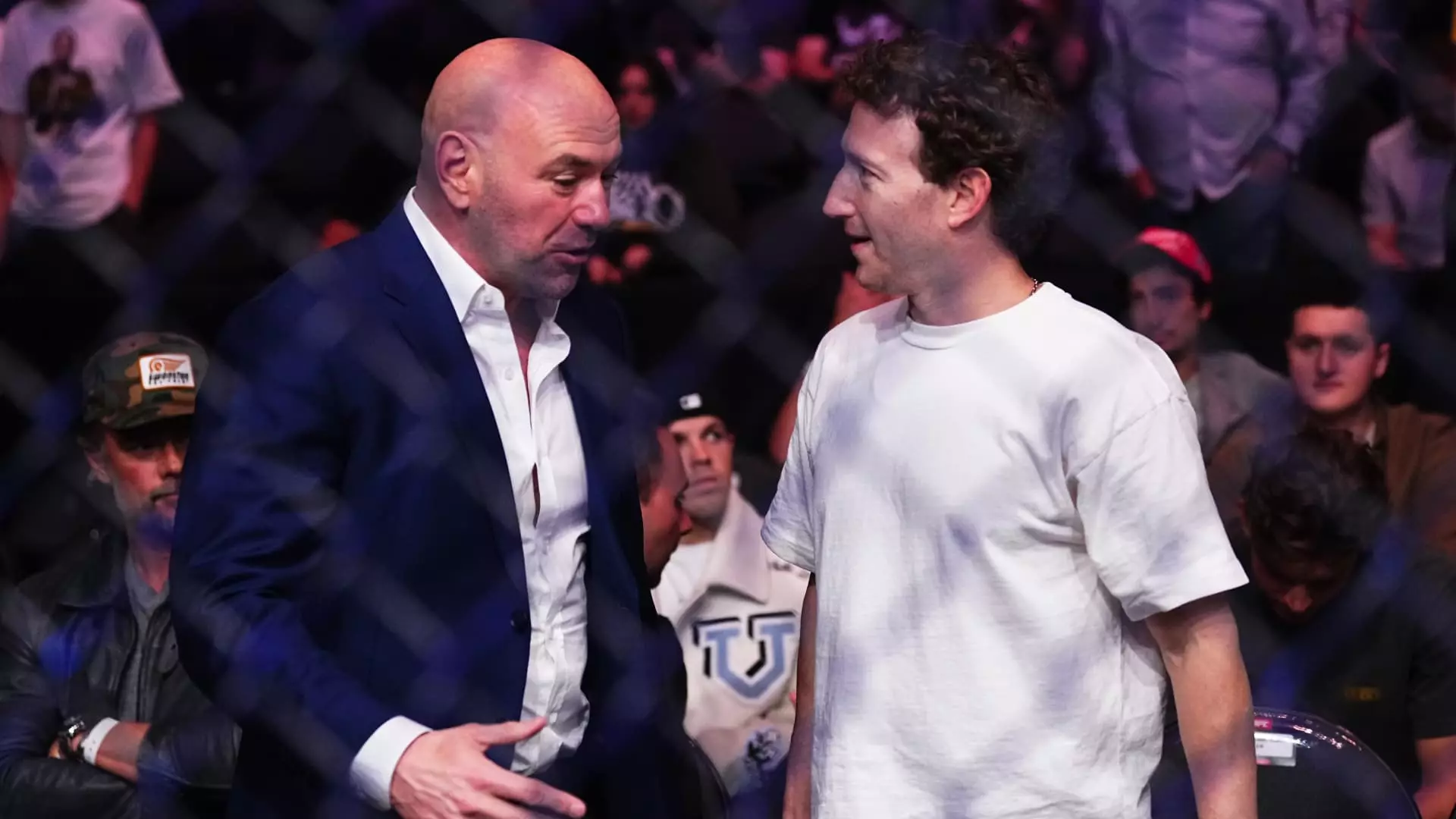In a move that seems more engineered for profit than passion, the alliance between TKO Group’s UFC and Meta, led by tech mogul Mark Zuckerberg, presents a complicated web of ambition and conflict. What is heralded as a revolutionary partnership—supposedly a win for both fans and the sport—feels more like a marketing scheme where the genuine experience of mixed martial arts takes a backseat to corporate agendas. The fight for authenticity is being overshadowed by the role of tech overlords like Zuckerberg, and it raises unsettling questions about the future of sports and entertainment.
This marriage of the UFC and Meta is flaunted as a grand opportunity, with both parties promising to ignite an experience for fans that will “blow them away.” But hold on—what about the voices of the fans themselves? Are we blind to the fact that Meta is a titan transformed into a corporate behemoth known for leveraging personal data and creating an environment riddled with privacy concerns? This venture into sports marketing may only serve to amplify Meta’s booming empire rather than enhance the fighters’ and fans’ experiences. The idea that Meta will become the “official fan technology partner” suggests a commodification of the very essence that makes mixed martial arts thrilling.
Fighting for the Soul of MMA
As UFC President Dana White gushes over the partnership, it’s hard to shake the notion that the history, bravery, and raw spirit of mixed martial arts may soon be diluted under the weight of Meta’s branding. Such extensive integration across Meta’s platforms—be it Facebook, Instagram, or the recently relaunched Threads—feels more like a desperate cash grab than a sincere effort to embrace the culture of the sport. The incorporation of Meta’s AI and wearable technology might be seen as innovative by some, but one must ask: at what expense? The emphasis on technology risks upsetting the theatrical immediacy that has defined MMA.
Fans might appreciate access to exclusive content, but let’s be real. This is merely a cover for Meta’s larger goal—to not only deliver entertainment but to own the very narratives that make MMA captivating. The UFC’s past collaborations weren’t free from scrutiny, but this partnership marks a significant philosophical shift that raises eyebrows among dedicated followers of the sport. Will fighters become pawns in a corporate chess game—distracted by gadgets and platforms rather than the battles and rivalries that unite them?
A Cultural Shift or a Dangerous Precedent?
The essence of what sports embody—a connection between athletes and their fans—is being transformed into packaged experiences that can be sold. Zuckerberg’s penchant for combat sports is well-documented, but it’s alarming how it intertwines with his corporate ethos. On Joe Rogan’s podcast, he flirted with ideas that seemingly celebrate aggressive behavior, and such remarks should cause concern. The implication that corporate culture would benefit from more “masculine energy” takes aim at the heart of what sports are truly about—camaraderie, values, and respect.
Moreover, this partnership teeters on the edge of overshadowing important ethical discussions. As White joins the Meta board and praises Zuckerberg, the optics are discomforting. The UFC’s ties with personalities like Donald Trump also lend a certain toxicity to the narrative—this deal stinks of opportunism. The integration of combat sports within a tech giant that has been criticized for fostering a hostile environment raises unsettling moral questions that can’t be ignored. What kind of message does it send when the leaders of the sport are entangled with ideologies and figures that are polarizing, if not outright detrimental to the values that define them?
The Illusion of Choice and the Role of Fans
Finally, as the UFC delves into this multi-year commitment with Meta, the question of choice arises. For how long will fans just accept corporate decisions made behind closed doors? The UFC’s exclusive negotiations with ESPN are set to expire soon; will they fall into the same traps of avarice that we see everywhere else in the media landscape? Are we on the brink of sacrificing genuine fan experience at the altar of corporate greed?
In the end, the partnership between UFC and Meta might appear as a grand spectacle, but the reality could be disheartening. This isn’t merely about the glory of sport; it’s about the fans who deserve a genuine connection, not a manufactured experience influenced by faceless corporate machinery. Amidst the dazzling possibilities of innovative technology, we must remind ourselves of the stories that matter—the tales of fighters, their struggles, and their victories, and ensure they don’t become mere footnotes in a corporation’s quarterly report.


Leave a Reply